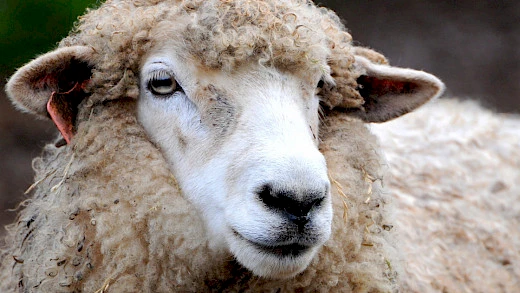Cyprus strengthens measures due to outbreak of sheep pox in Greece

A serious outbreak of a disease affecting small ruminants — the so-called "sheep pox", which affects sheep and goats — has been recorded in Greece. This situation has caused concern in Cyprus, where veterinary services have been placed on high alert.
According to the authorities of the Republic of Cyprus, no cases of the infection have been detected in the controlled areas so far. However, similar cases were previously recorded in the Turkish-controlled parts of the island, which raises the level of concern.
Cypriot services note that the situation is under constant monitoring at the European Union level. Restrictions on the import of animals from countries where outbreaks have been identified, including Greece, have already been imposed. All movements within the EU are accompanied by sanitary and veterinary certificates, which are checked at border crossings, including when animals arrive in Cyprus.
One of the main protective measures is vaccination. Vaccines help develop immunity in animals, reducing the risk of infection and mortality. In Cyprus, preventive measures are also applied — regular disinfection of farm premises and areas, especially in risk zones.
The Secretary General of the Pan-Cyprian Farmers’ Union, Tasos Yapanis, noted that most large livestock complexes on the island are closed and protected, but the risk of the infection being introduced cannot be completely excluded.
Particular concern is caused by the so-called "Green Line" — the dividing zone between the southern and northern parts of the island. Illegal movement of animals across it is considered a potential source of danger, as such animals are not subject to veterinary control.
The disease affects only sheep and goats and is not transmitted to humans. In animals it manifests as fever, skin rashes, loss of appetite and weakness. The virus can survive for up to six months in wool or feed, which complicates control efforts.
For humans, food products are not a threat: milk from infected animals is safe after pasteurization, and meat is suitable for consumption after normal processing.
Without control, the disease can have serious economic consequences: reduction of livestock numbers, decreased production volumes and significant losses for farmers. In some cases, control measures include restricting the movement of animals, creating control zones and destroying infected livestock.
The Cypriot authorities, together with European structures, are considering support options for farmers, including subsidies for the purchase of vaccines and disinfectants. The main task at present is to prevent the introduction of the disease to the island and protect the agricultural sector from a possible crisis.


